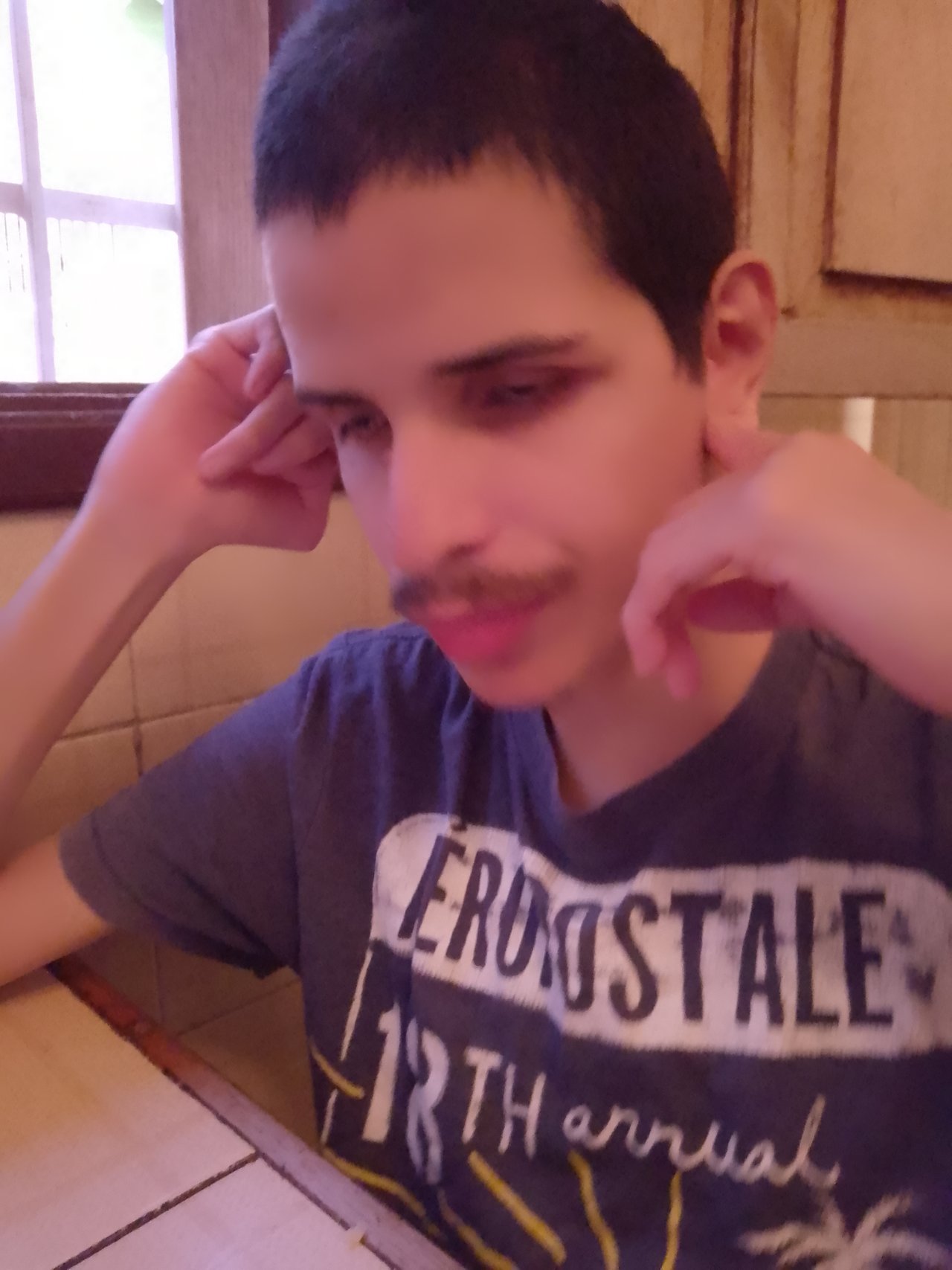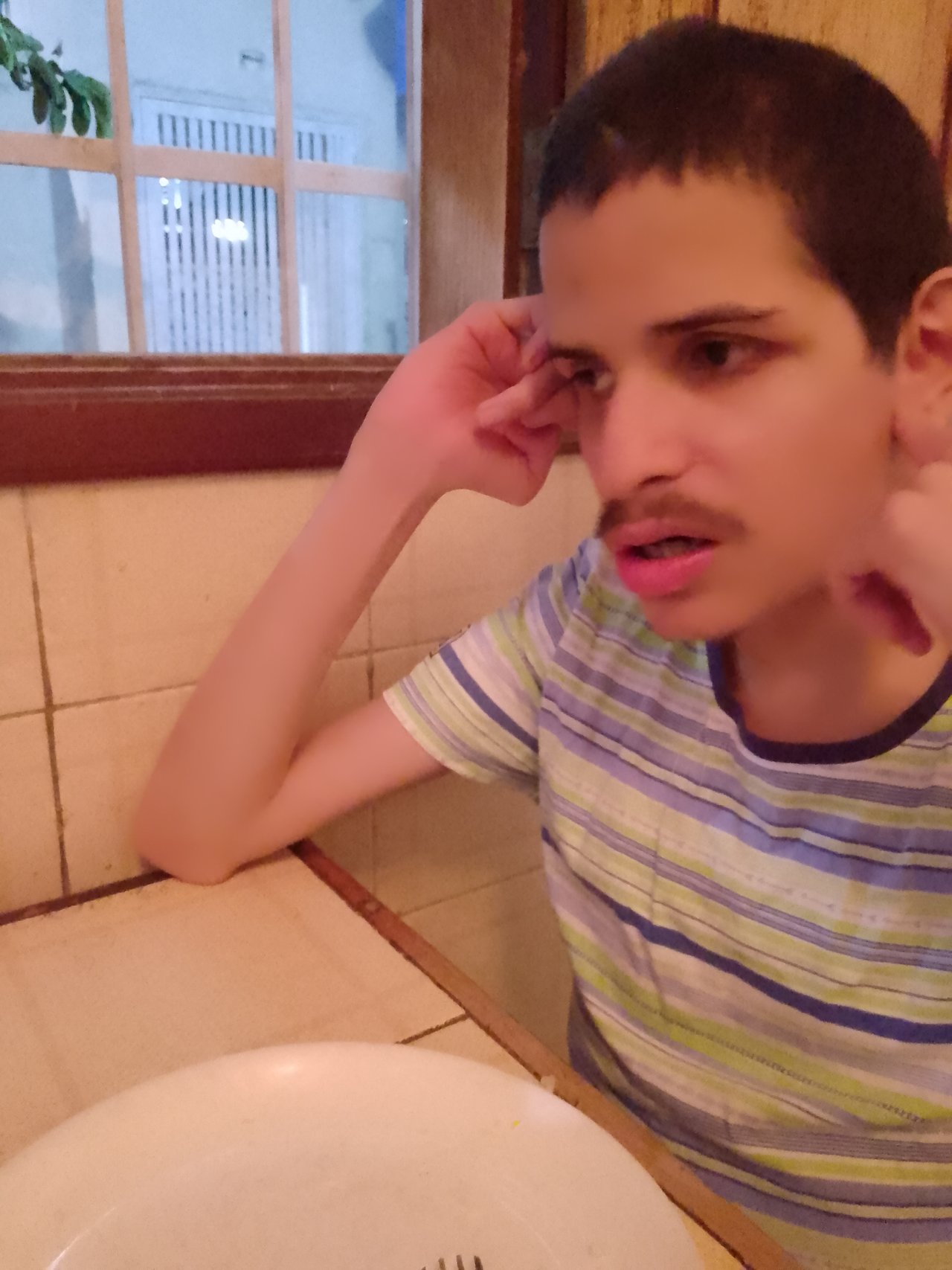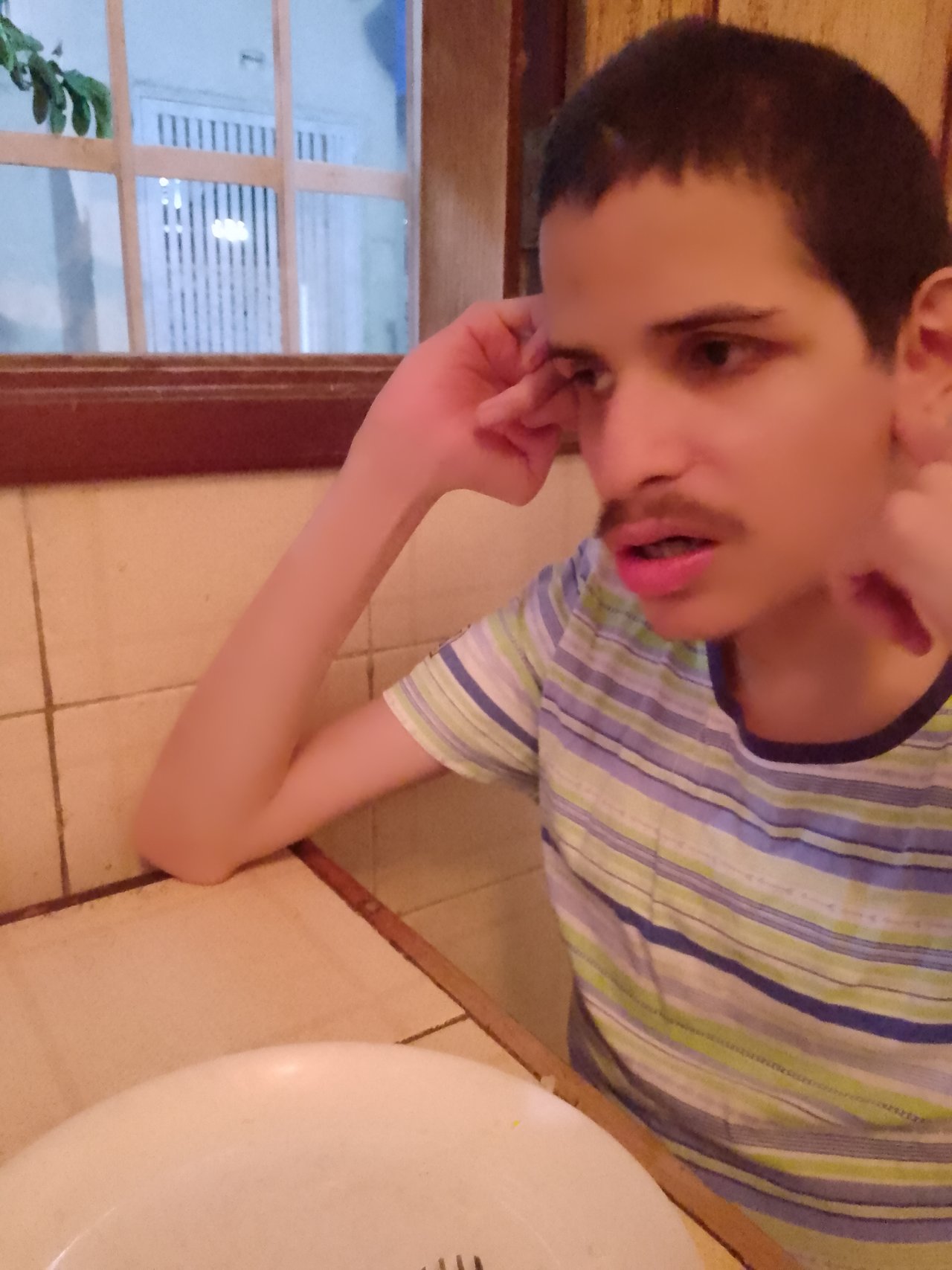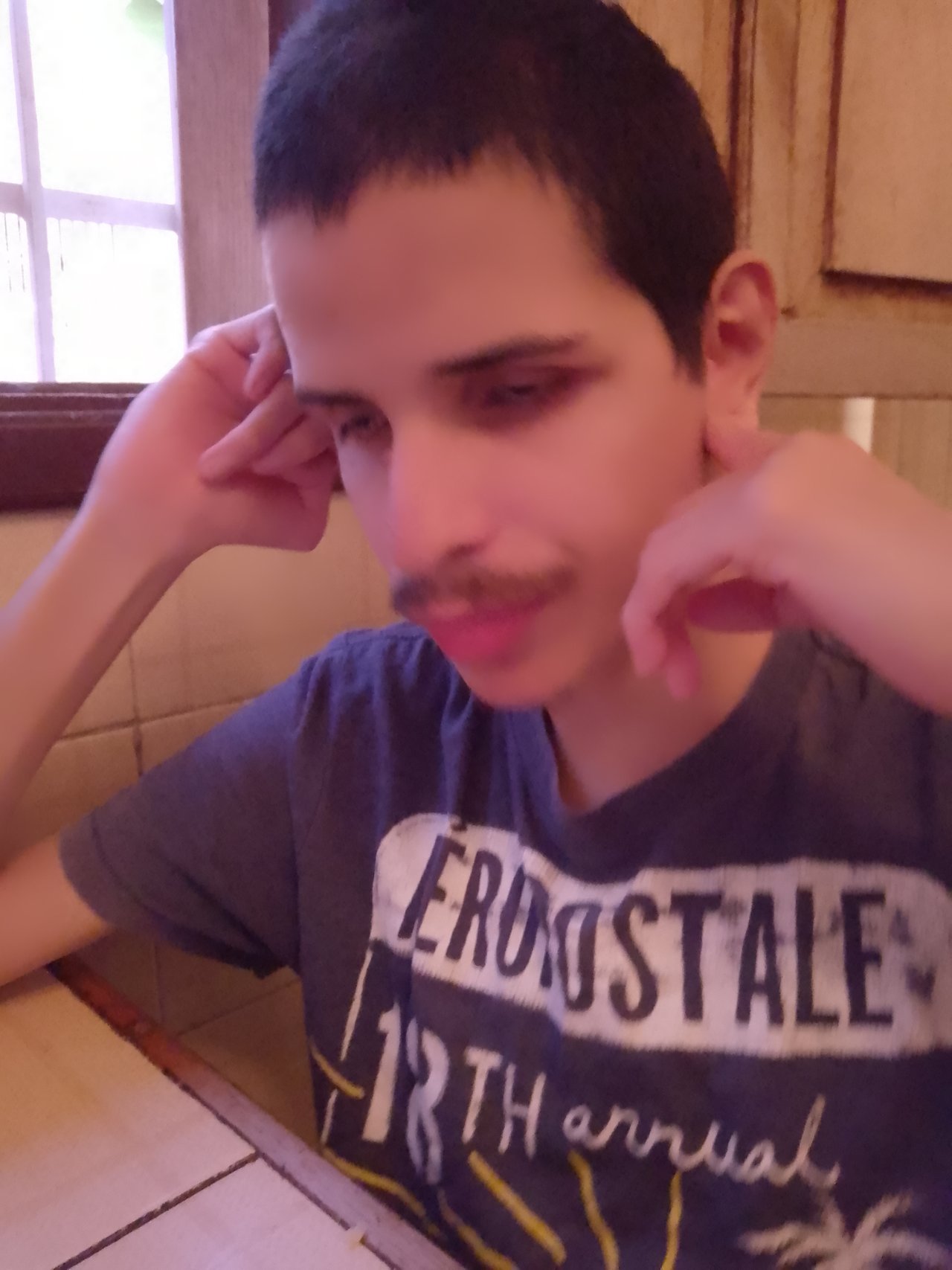Saludos a la comunidad de #holos&Lotus y a @lilianajimenez.


Empecemos por el principio, a las personas con autismo no se si podría decirse con propiedad que les guste la música, pero lo que si puedo decir es que la oyen y la escuchan.
Cuando es un autismo severo, es a través de la musicoterapia que los terapeutas logran la comunicación con estas personas.
Mi hijo cuando volvió a caminar, no caminaba derecho y varios meses de terapia con música funcionó y camina bien y corre. Camina como un militar.
La música es terapeutica, si funciona para normalizar la presión arterial y tiene muchas propiedades que ahora no recuerdo.
La terapia con música, no es colocar música en un aparato de sonido y listo , y con eso se sanó a la persona, para nada, va mucho más allá de eso, es un estudio que es impartido en La U.C.V. y tiene una duración de 5 años.
La persona que va a estudiar musicoterapia, entra a la universidad y por lo menos debe saber tocar un instrumento.
Los musicoterapeutas que conozco, tocan maracas, cuatro, guitarra y cuatro . Es posible que sepan tocar otro instrumento, pero los tres que conozco tocan todos esos.
Yo pregunté , porque yo quería tener esa profesión, pregunté como se hacía , pero no va a ser posible en mi caso, porque no toco ni un solo instrumento, no sé nada de música, lo único que sé es que me gusta escuchar música..y eso no basta.
Las personas que conozco que son musicoterapeutas, uno es psicopedagogo, terapista Gestalt, hace Reiki , acupuntura , el otro es Psiquiatra y el otro que fue él que le hizo la terapia a mi hijo, es Arquitecto.
En la carrera, aprenden a conocer que notas musicales usar, algo así entendí , de acuerdo a la necesidad de cada persona.
No es difícil , pero tampoco es fácil .
A mi hijo lo trató con música en equipo de sonido y tocando instrumentos, pandereta también usó.
Yo no comprendi mucho del asunto, porque hay que obligatorio saber música y luego la parte terapeutica que va directo al cerebro y esa es la que reciben en esos cinco años, porque música ya saben los alumnos.
Mi hijo tiene más de 22 años que estuvo con esa terapia de música, y aún él conserva esa enseñanza, cuando él escucha música llanera en vivo , él mueve la cabeza y aplaude al compás de la música, mi sobrino y otro señor , que sabe música, se han dado cuenta como él va cambiando del sonido del instrumento con aplausos y el movimiento de la cabeza. Yo hasta allá no llego. También hay que ser músico para detectar eso.
El arquitecto que le hizo esta terapia a mi hijo , por su conocimiento lograba que mi hijo estuviera tranquilo durante la hora que duraba la terapia. Tranquilo en el sentido de que no buscara ir hacia la puerta para marcharse, porque mi hijo siempre se quiere ir de todas partes al llegar. Esto también lo aprenden en esta carrera.
En otro orden de ideas el joven que no tenía costumbre de escuchar música, simplemente no extraña lo que no sabe que existe. Y quizás se siente invadido porque no está acostumbrado a ese sonido.
Si ha vivido en silencio desde toda su vida la música no le hace falta.
Yo a mi hijo le he puesto Mozart y no le gusta, pero el Reguetón sí. Con la música clásica se disgusta, con el Reguetón brinca, grita , es una conducta extraña, diferente , "el lago de los cisnes", no lo soporta.
El mundo de la música es infinito.

English Version
Greetings to the #holos&Lotus community and @lilianajimenez.


Let's start at the beginning, I don't know if people with autism could properly be said to like music, but what I can say is that they hear it and listen to it.
When it is severe autism, it is through music therapy that therapists achieve communication with these people.
When my son walked again, he did not walk straight and several months of music therapy worked and he walks well and runs. Walk like a military man. Music is therapeutic, it does work to normalize blood pressure and it has many properties that I don't remember now.
Music therapy is not about putting music on a sound device and that's it, and with that the person is healed, not at all, it goes much further than that, it is a study that is taught at La U.C.V. and lasts 5 years.
The person who is going to study music therapy enters university and must at least know how to play an instrument. The music therapists I know play maracas, cuatro, guitar and cuatro. They may know how to play another instrument, but the three I know play all of those.
I asked, because I wanted to have that profession, I asked how to do it, but it will not be possible in my case, because I do not play a single instrument, I do not know anything about music, the only thing I know is that I like to listen to music... and that is not enough.
The people I know who are music therapists, one is a psychopedagogue, a Gestalt therapist, he does Reiki, acupuncture, the other is a Psychiatrist and the other who did the therapy for my son is an Architect. In the race, they learn to know which musical notes to use, something like that I understood, according to the needs of each person. It's not difficult, but it's not easy either.
He treated my son with music on a sound system and playing instruments, he also used a tambourine. I didn't understand much about it, because it is mandatory to know music and then the therapeutic part that goes directly to the brain and that is what they receive in those five years, because the students already know music.
My son has been with that music therapy for more than 22 years, and he still retains that teaching, when he listens to live llanera music, he moves his head and claps in time with the music, my nephew and another man, who knows music, have noticed how he changes the sound of the instrument with applause and the movement of his head. I can't get there.
You also have to be a musician to detect that. The architect who did this therapy for my son, through his knowledge, managed to ensure that my son was calm during the hour that the therapy lasted. Calm in the sense that he would not try to go to the door to leave, because my son always wants to leave everywhere when he arrives. They also learn this in this career.
In another order of ideas, the young man who was not used to listening to music simply does not miss what he does not know exists. And maybe you feel invaded because you're not used to that sound. If you have lived in silence your entire life, you don't need music.
I played Mozart for my son and he doesn't like it, but Reggaeton does. He gets upset with classical music, with Reggaeton he jumps, shouts, it's a strange, different behavior, "Swan Lake", he can't stand it.
The world of music is infinite.
Saludos
@tipu curate 4
Upvoted 👌 (Mana: 35/75) Liquid rewards.
Muchas gracias.
Feliz noche
@zorajaime, one of your Hive friends wishes you a Happy Valentine's day and asked us to give you a new badge!
To find out who wanted you to receive this special gift, click here!
You can view your badges on your board and compare yourself to others in the Ranking
Check out our last posts:
Y es que es tan amplia la gama de sanación que nos ofrece la música. La musicoterapia es un tratamiento maravilloso, qué bueno que existen personas que se dedican a eso, ojalá conociera uno acá en san Fernando. Gracias por tu publicación.
Lo quieres lo tienes.
Se me ocurre que vayas a un lugar donde haya psicopedagogos y hagas una dupla tu sabes música, y así van aprendiendo.
El arquitecto que ayudó a mi hijo sin abandonar su carrera entro en el mundo psíquico.
Dios te bendiga mucho con salud perfecta.